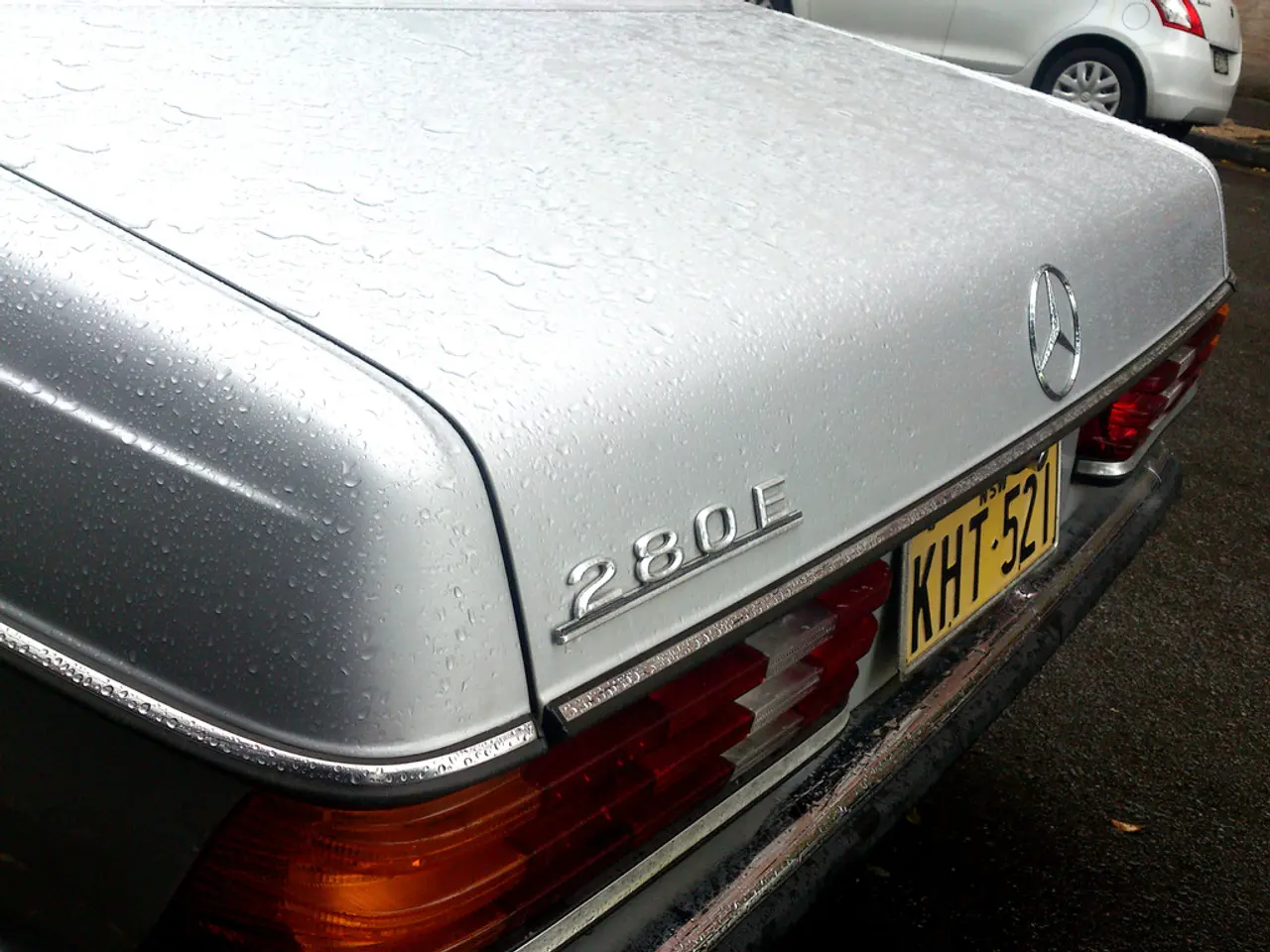Enhancing the Community's international ties with Central and Eastern European nations will remain a collaborative effort between the Commission and the Member States.
Stuttgart Lights Up for Taicang
On the sweltering day of June 25th, the city of Stuttgart was buzzing with excitement. An esteemed delegation from Taicang graced its streets, marking the 17th "Taicang Day."
Echoing back to their roots, the celebration returned to the city that welcomed the first German company from Taicang — Baden-Württemberg. The event, co-ordinated by the Taicang Municipal Government, promised a feast of ideas around innovation, sustainability, and mutually beneficial collaborations. Over 250 delegates from various spheres of power, including business, politics, and society, gathered to discuss shared future prospects and reinforce Chinese-German kinship.
Adorned with the theme "Innovation-oriented · Green Win-Win," the program presented a vibrant showcase of the fruitful cooperation and fresh opportunities in economy, education, and culture between Taicang and Germany. In his opening speech, the Secretary of the municipal party committee of Taicang — Mr. Wang Xiangyuan — drew a parallel between Stuttgart, the "birthing ground of the automobile," and Taicang. Today, approximately 70% of a vehicle's components are produced in Taicang, with 70% of the German firms in Taicang anchored in the automotive sector. Kern-Liebers, the pioneering German company, was the first to set its roots here, hailing from Baden-Württemberg. Currently, more than 550 German companies find their home in Taicang, with around one-fifth tracing their origins to Baden-Württemberg.
Situated within the economically booming Yangtze Delta, Taicang stands as a shining example of China's open-door policy. Reminiscent of a charming traditional city in Jiangnan, it boasts a green space ratio comparable to European cities and offers a premium quality of life, with an average life expectancy surpassing 85 years. Despite being a relatively small city, Taicang boasts immense reputation in Germany. The former Chinese ambassador to Germany, Shi Mingde, admired Taicang's notoriety, saying, "Taicang is better known in Germany than in China."
As a major port on the Yangtze River, Taicang houses China's largest foreign trade port, with over 200 sea routes tracing to Europe, North America, Japan, South Korea, the Middle East, and other regions. Capable of handling eight million standard containers annually, the port can stand shoulder-to-shoulder with the renowned Hamburg port. Each tenth car exported from China leaves via the Taicang port, with nearly 500,000 vehicles exported last year alone.
A standing ovation swept through the crowd when the venerable Dr. Steim received the "Hi Taicang Card" and "the Honor Card of Taicang City." Dr. Steim first stepped foot in Taicang in 1993, spotting striking similarities with German cities. He played a crucial role in establishing the first German firm. The "Honor Card of Taicang City" is awarded to people who significantly contribute to Taicang's economic and social development, while the "Hi Taicang Card" is a special welcome card extended to foreigners, encompassing benefits in healthcare, education, and mobility.
The event saw several cooperation agreements being inked, including with Taicang High-Tech Park and the German Football Association, the German Society for International Cooperation (GIZ), among others. The agreements cover areas such as economy, culture, sports, and vocational education.
To toast Beethoven's 255th birthday, the "German-Chinese Beethoven Choral Arts Festival 2025" and the first "Taicang German-Chinese Choral Gala" were slated for August 22 to 24, 2025, in Taicang. The return to its roots in Stuttgart signifies the growth and strengthening of the Chinese-German bond. As of now, over 550 German companies operate in Taicang, approximately 10% of all German manufacturing companies in China. This includes approximately 60 "hidden champions," employing over 3,000 German specialists and pouring in investments worth $6 billion. Taicang has earned a reputation as the "Chinese city of German SMEs" far beyond its boundaries.
If you want to be part of this thriving cooperative dynamics, feel free to reach out at Ping Feng at [email protected]
Sources
Fun Fact: The first German company in Taicang, Kern-Liebers, has played a vital role in transitioning China into a major automobile producing country. Widely known for inventing the tool and mould industry in Asia, Kern-Liebers' products are now essential components in the production of vehicles across the globe.
Behind the Scenes: The "Taicang Day" event is an annual affair that fosters closer business ties between Taicang and the German region of Baden-Württemberg. The event serves as a valuable platform for discussing current issues, exploring new collaboration opportunities, and instilling enthusiasm for future prospects. The sharing of ideas and experiences between the Chinese and German delegates reinforces their bilateral bond and serves to establish a strong, sustainable partnership between the two regions.
[1 - 3] Economic Cooperation: Foundations and Milestones:The strong economic partnership between Taicang and Baden-Württemberg can be traced back to 1986, when the first German company, Kern-Liebers, set foot in Taicang. Ever since then, the connection has grown with notable predominance in the automotive industry. In recent years, Taicang has emerged as a significant player, accounting for approximately 70% of vehicle component production and hosting around 70% of German firms in the automotive sector. These firms contribute notably to the economic growth and development of the region, with over 550 German companies, approximately one-fifth originating from Baden-Württemberg.
[5] Educational and Institutional Partnerships:The shared commitment to strengthening the ties between Baden-Württemberg and Taicang extends to education, as showcased by the Sino-German Center (SGC) at Frankfurt School of Finance & Management's collaboration with Zhejiang University International Business School (ZIBS). This cooperation primarily focuses on research, faculty and student exchanges, executive education, and joint conferences to enhance understanding of China in Europe and vice versa. The two academic institutions engage in regular exchanges aimed at supporting the educational partnership, despite the challenges posed by the global environment.
- The strong economic partnership between Taicang and Baden-Württemberg, initially forged in 1986 with the arrival of the first German company, Kern-Liebers, has flourished, particularly in the automotive industry. Today, approximately 70% of a vehicle's components are produced in Taicang, with 70% of German firms in Taicang anchored in this sector.
- Sustaining the connection beyond business, educational partnerships have been established. For instance, the Sino-German Center at Frankfurt School of Finance & Management collaborates with Zhejiang University International Business School, focusing on research, faculty and student exchanges, executive education, and joint conferences to foster mutual understanding between China and Europe.






